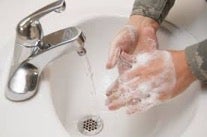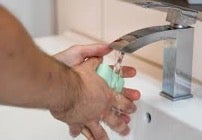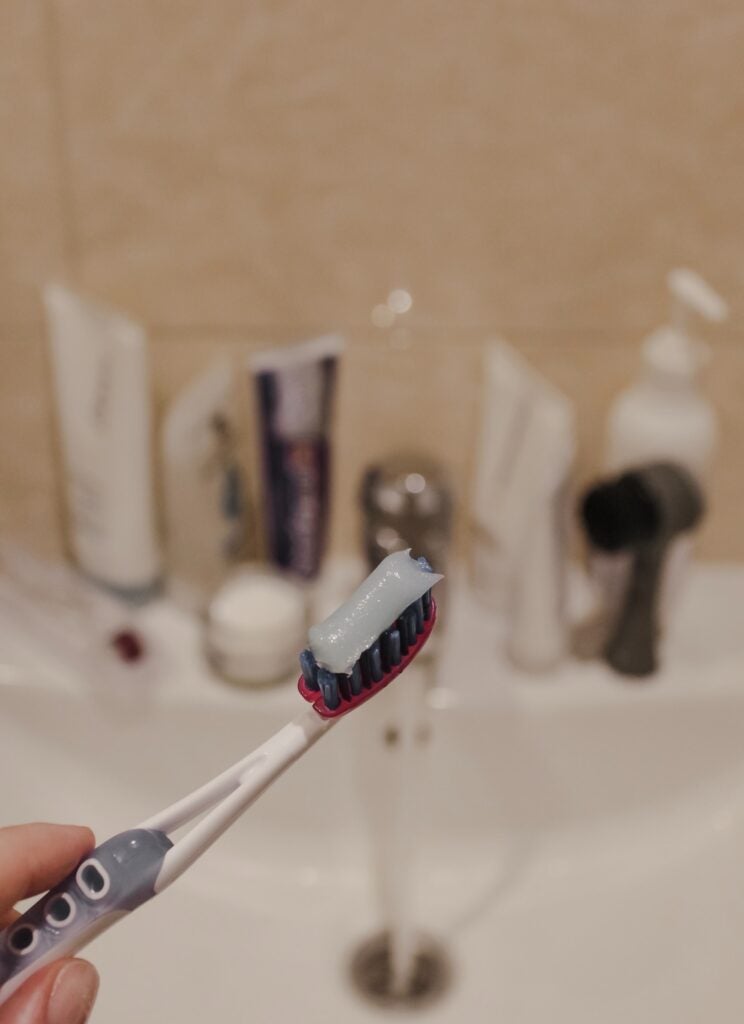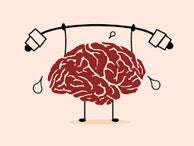Proper hygiene is one of the simplest and most effective methods of disease prevention. It encompasses the maintenance of healthy teeth, personal confidence, and good habits.1 In most cultures, hygiene is a key component of both socialization and as the development of relationships that are both sexual and non-sexual in nature. Improper hygiene can be attributed to poverty, lack of education, and mental illness. Keeping one’s body clean includes hand washing, teeth brushing, and bathing. Sexual health is directly related to hygiene and includes practices such as the cleaning of genitals to prevent unpleasant odors and detrimental infection. Hygiene maintenance is much more difficult to manage in less affluent regions of the world due to a variety of factors such as lack of access to clean water and proper education. Because of this, hygiene awareness is even more important in less affluent regions.
Table of Contents
Hand Washing

Clean hands are critical for disease prevention as well as the spread of illness. Disease is spread through viruses and bacteria found in the bodily emissions of contaminated animals and people.2 These emissions may include feces, saliva, mucus, and raw meat.2 Touching one’s face, kissing, sharing drinks, and even touching door handles are common ways that viruses and bacteria spread. Washing one’s hands with soap and water is much more effective than washing with water alone.2 The Centers for Disease Control (CDC) reports that about 1.8 million children under the age of five die each year due complications associated with diarrhea and pneumonia.2 Additionally, 33% of children who develop diarrhea and 20% of children who develop respiratory infections like pneumonia could be protected by washing their hands with soap.2 A vast amount of death can be prevented by utilizing the simple technique of washing one’s hands with soap and clean water. Hand washing is not the only solution to proper hygiene, but it is a critical component of hygiene that can be very effective when combined with proper technique and soap usage.
Hand Washing and Sexual Health
An individual’s skin contains a plethora of both good and bad bacteria. Hand washing can be extremely effective at reducing bacterial count. In a study of healthcare workers, water and soap decreased bacterial counts by 58%, while alcohol-based hand rubs reduced bacterial counts by 83%.3 Decreasing bacterial counts does not directly indicate good health as good bacteria are also typically present, but decreasing bacterial count is associated with preventing infection.3 Similarly, hand washing prior to touching one’s own or a partner’s genitals can be beneficial, as the spread of bacteria and infection is decreased by soap usage. For example, having clean hands before sex can be valuable as the vagina can be more prone to an infection if it is handled with unsanitary hands.

When to Wash Your Hands
The CDC recommends that people wash their hands when preparing food, and before every meal.2 When dealing with an illness, cut, or wound, people should wash their hands before and after treatment as to decrease chances of spreading illness. When feces are involved, hand washing is highly recommended as many illnesses spread through feces. The CDC highly recommends hand washing when feces are involved so always wash your hands after a trip to the bathroom.2 For safety, individuals should wash their hands before and after sex. Hand washing can be overdone in the case of Obsessive Compulsive Disorder (OCD), but, in most situations, it is an important factor in a person’s health and hygiene.
The Correct Way to Wash Your Hands
The CDC’s recommendations for hand washing are as follows:
- Wet your hands with clean, running water (warm or cold) and apply soap
- Rub your hands together to make a lather and scrub them well
- Clean under your and between your fingers
- Continue rubbing your hands together for about 20 seconds
- Rinse your hands under clean water
- Dry your hands
Each of the above steps serves a specific purpose in reducing the viruses and bacteria found on the hands. Hand washing using this method can be extremely effective if done correctly.
Oral Hygiene

A nice, clean smile is a cherished attribute across many cultures. Clean teeth also contribute to one’s physical health. The buildup of bacteria in the mouth can lead to gum disease and possibly erectile dysfunction.4 It was previously thought that there was a clear association between heart disease and gum disease, but the newest research highlights that maintaining oral health has no correlation to preventing heart disease.5 To ensure proper oral hygiene, individuals should brush their teeth at least twice a day for at least two minutes, and visit a dental clinic at least once or twice a year.6 Oral hygiene is very important, but how does one brush their teeth? First, obtain a toothbrush and wet the bristles. Then apply fluoride-containing toothpaste on the bristles of the brush. Next, utilize a proper brushing technique by brushing at a 45-degree angle to your gums making sure to reach the back of your teeth as well.6 Also, teeth should be brushed for at least two minutes.7 Flossing is another key component of oral hygiene that includes wiggling a piece of floss between teeth to remove any unwanted food that can foster bacterial growth.7 Although flossing has been emphasized by dentists and health experts for decades, there is not sufficient evidence to support that flossing increases gum health or prevents cavities over time. Other practices that can help improve oral hygiene include using toothpaste that contains fluoride, being gentle when brushing one’s teeth, and most importantly, being consistent with how often one brushes their teeth.
Oral Hygiene is important from a social and health perspective. When applying for a job or meeting new people, having good smelling breath and a clean smile can be crucial in making a good first impression.

An intersection of Oral and Sexual Health
Oral and sexual health are directly linked. First of all, an individual can come off as having poor hygiene if their oral health seems inadequate. Signs of poor oral health are bad breath, rotting or yellowing teeth, and bleeding or sore gums.5 Taiwanese researchers have alluded to the notion that men who have chronic gum disease are much more likely to experience erectile dysfunction.4 Similarly, researchers from Turkey found that 53% of men in their thirties who have erectile dysfunction also have chronic gum disease.4 Turkish researchers have concluded that men with chronic gum disease were three times more likely to develop erectile dysfunction than men without chronic gum disease. There has not been a clearly identified cause-and-effect relationship, but there is a correlation between chronic gum disease and erectile dysfunction.5 Oral health is a key determinant of adequate sexual health.
Bathing

In terms of physical health, bathing once or twice a weak is sufficient, but one may want to take more baths if they smell.6 Bathing can be a very relaxing experience, and keeping clean reduces one’s risk of developing an infectious disease.6 Social events typically require an individual to be bathed as smelliness can be a major deterrent. Most people know how to take a bath, but it is not common sense for some. When bathing, use cold water and soap. Over-showering can cause cracking of the skin, which can provide an ideal environment for infection.6 Focus on the sweaty regions such as the armpits and groin when applying soap. Hair can be washed a few times a week if one has a dry scalp.
Bathing and Sexual Health
The balance of bacteria in the vagina is critical to its health. These bacteria are in place to outnumber possible harmful bacteria, maintain the acidity of the vagina, and produce natural antibiotics to kill harmful bacteria.7 The vagina has natural cleaning mechanisms, but the vaginaand the vulva should still be cleaned daily. The balance of bacteria can be disturbed by factors such as a lack of washing of the vagina, usage of scented soaps, and douching. Lack of washing the vagina and vulva can create a suitable environment for bacteria to grow, which increases the chance for infections like bacterial vaginosis to develop.7 When one is experiencing menstruation, it is essential to wash with soap at least once a day.7 Furthermore, it is highly recommended to keep the perineum clean, as this is an area that if not maintained, can increase chances of infection or bad odor.7 Perfumed soaps and antiseptics can cause irritation of the vagina as they can upset its balance of bacteria. Instead of scented soaps, one can use unscented soaps to clean the vagina and vulva. Douching is an ineffective method of cleaning the vagina as the technique clears out the good bacteria in the vagina, creating an environment that fosters bacterial growth.7 Theoretically, douching is meant to prevent infection, but there is no evidence to support the claim that it is effective.

Maintenance of the penis is advantageous for both an individual and their partner. The penis should be washed with warm water each day to prevent the buildup of smegma, which is a lubricant that keeps the penis moist, but also emits a pungent odor.8 Smegma resides in the tip of the penis as well as under foreskin. The presence of smegma can be very off-putting to a partner as the smell is very strong. The penis can be sensitive, so over-washing can cause irritation and soreness.8 The testicles and the pubic area can also emit a strong smell due to the high amount of sweat in both regions, so thoroughly washing those regions can be beneficial. Keeping the perineal region and anus clean is just as important as cleaning the penis itself, as both regions can emit pungent odors.
Mental Hygiene

Mental hygiene includes providing oneself with all of the basic necessities to be happy, such as proper sleep, diet, and exercise. Mental hygiene prevents mental illness, a topic that is not readily talked about as some cultures are still skeptical about the idea. The World Health Organization (WHO) reports that over 300 million people worldwide suffer from depression, 260 million are living with anxiety-related disorders, and 1 trillion dollars are lost each year in productivity.9 The mind, just like the body, requires attention to keep it healthy. Just like an individual goes to the optometrist if they cannot see well, they should also visit a psychologist or counselor if they have been feeling depressed. Some cultures view mental hygiene as something that should be kept internalized, but that notion is antiquated as internalizing problems can lead to isolation. Talking to someone can help find the solution to a problem, which can further relieve stress and anxiety. Just like hand washing and teeth brushing, mental hygiene should be practiced on a daily basis. For example, positive reinforcement on a day-to-day basis can discourage an individual from negative attitudes and thoughts. Trauma, depression, and anxiety are common mental disorders that can cause sexual dysfunction. Continuation of proper mental hygiene can decrease stress and negative thoughts that are associated poor mental health.
Concluding Remarks
Clean hands can drastically improve global health, which can save numerous lives across the world. Maintaining proper oral hygiene contributes to prevention of gum disease. Consistent bathing can have beneficial health implications, and can also help an individual get a job or develop a relationship. The most overlooked aspect of self-care is mental hygiene. Proper hygiene has a spectrum of benefits, and the only recognizable pitfall of maintaining a clean body is over-doing it. In moderation, proper hygiene can be part of a happy and healthy lifestyle.
References
- Gaskell, Karen. “Types of Personal Hygiene.” LIVESTRONG.COM. Leaf Group, 18 July 2017. Web.
- “Handwashing: Clean Hands Save Lives.” Centers for Disease Control and Prevention. Centers for Disease Control and Prevention, 18 Nov. 2015.
- Harvard Health Publishing. “Wash Your Hands.” Harvard Health.
- “International Society for Sexual Medicine.” What Is the Link between Erectile Dysfunction and Gum Disease? ISSM.
- Lockhart, Peter B., et al. “Periodontal Disease and Atherosclerotic Vascular Disease: Does the Evidence Support an Independent Association?” Circulation, American Heart Association, Inc., 1 Jan. 2012.
- “Six Health Problems Linked to Bad Oral Hygiene.” We Are the Oral Health Foundation.
- “Ten Dental Hygiene Tips for a More Thorough Clean.” 10 Dental Hygiene Tips for a More Thorough Clean Colgate.
- “You Asked: How Often Should I Shower?” Time. Time, n.d.
- “Keeping Your Vagina Clean and Healthy – Live Well.” NHS Choices, NHS.
- “How to Keep a Penis Clean – Live Well.” NHS Choices, NHS.
- “World Mental Health Day 2017.” World Health Organization, World Health Organization.
Last Updated: 27 February 2018.
